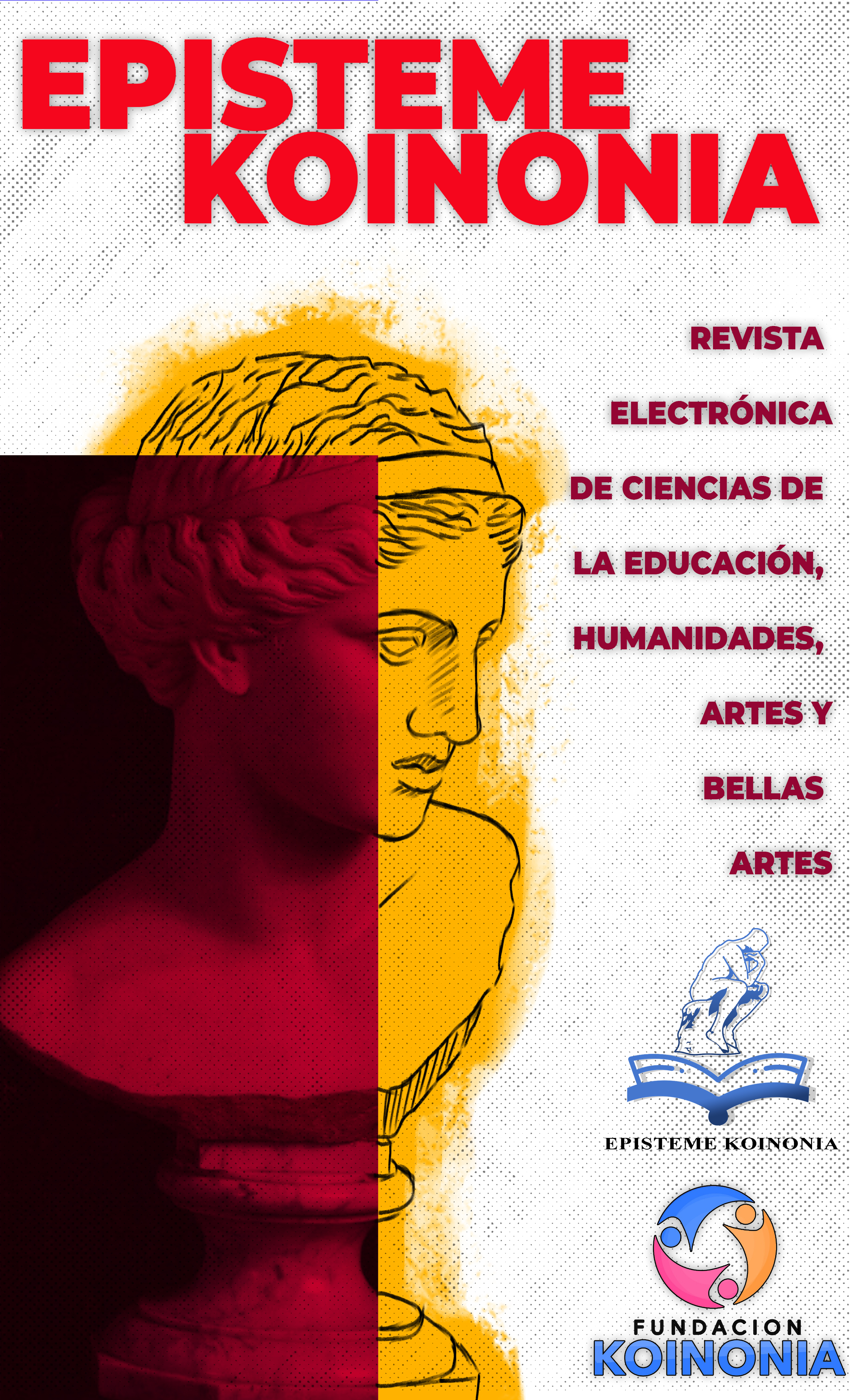Learning in students with attention deficit hyperactivity disorder. A systematic review
DOI:
https://doi.org/10.35381/e.k.v8i16.4579Keywords:
Attention, inclusive education, academic performance, (UNESCO Thesaurus).Abstract
This study aimed to analyze recent research oriented to learning in students with attention deficit hyperactivity disorder (ADHD). The search focused on articles published between 2022 and 2025. Through a literature review conducted in the Scielo and Scopus databases, four studies published between 2024 and 2025 were selected that addressed aspects related to attention, academic performance, and teachers' perceptions. The analysis was performed using a matrix as a basis that organized the results according to key dimensions of learning. The results showed insufficient attention to emotional development, an urgent need for teacher training and little standardization in educational assessment processes. It was concluded that ADHD has demanded comprehensive responses in the school environment, with strategies to favor inclusion and guarantee adequate conditions for learning.
Downloads
References
Alsop, B., Furukawa, E., Sowerby, P., Jensen, S., Moffat, C. & Tripp, G. (2016). Behavioral sensitivity to changing reinforcement contingencies in attention-deficit hyperactivity disorder. Journal of Child Psychology and Psychiatry and Allied Disciplines, 57(8), pp. 947-956. Disponible en: https://n9.cl/8bk0j
Burbano, A. (2025). Desafíos emocionales en estudiantes de ciencias de la salud: un análisis desde el estrés, la ansiedad y la depresión. Rev UNIANDES Ciencias de la Salud, 8(2), pp. 173-192. Disponible en: https://n9.cl/vpehk
Cajas, P., Velasco, C. & Mejías, M. (2025). Uso de la tecnología en la práctica de enfermería en cuidados críticos. Revista Arbitrada Interdisciplinaria de Ciencias de la Salud. Salud y Vida, 9(17), pp. 136–153. Disponible en: https://n9.cl/r6zun
Chamorro, D., Hurtado, C., Chamorro, Y. & Isea, J. (2024). Comprehensive approaches to prevent clinical illness and promote mental health in children and adolescents. Health Leadership and Quality of Life [Internet], 3:568, pp.1-17. Disponible en: https://n9.cl/7wcx6
Isea, J., Molina, T., Álvarez, G. & Romero, A. (2025). Impact of academic stress on the well-being of postgraduate students: coping Strategies. Salud, Ciencia y Tecnología - Serie de Conferencias [Internet], 202, 4:628, pp. 1-10. Disponible en: https://n9.cl/suqky
Lara, E., Pazmiño, G. & Játiva, J. (2021). Principales dificultades para el diagnóstico del TDAH en niños en Ecuador. Revista Scientific, 6(22), pp. 96-116. Disponible en: https://n9.cl/vblds
Manrique, A. (2019). Acciones Pedagógicas para la Atención de Niños/as con Trastorno por Déficit de Atención e Hiperactividad (TDAH). Revista Scientific, 4(11), pp. 46–66. Disponible en: https://n9.cl/r0378
Martínez, A. & Almeida, L. (2021). Relación entre las habilidades de adaptación conductual y las dificultades emocionales y comportamentales en adolescentes. Revista Uniandes Episteme, vol. 8, núm. 3, pp. 364–378. Disponible en: https://n9.cl/09lh9
Montenegro, M., Muevecela, S. & Reinoso, M. (2020). Las Tics: Una nueva tendencia en la educación inclusiva. Revista Scientific, 5(17), pp. 311–327. Disponible en: https://n9.cl/4o3lw
Palmini, A. (2024). Trastorno por déficit de atención e hiperactividad (TDAH) en adultos: un enfoque multidimensional para un trastorno grave de falta de atención al futuro. Archivos de Neuro-Psiquiatría, 82(07), pp. 1-12. Disponible en: https://n9.cl/jhchay
Saldarriaga, A. & Briones, Y. (2022). El aprendizaje de estudiantes con trastorno por déficit de atención e hiperactividad desde las TIC. EPISTEME KOINONIA, 5(1), pp. 405-416. Disponible en: https://n9.cl/1smgs
Salas, S., Araya, A., Carvajal, S., Contreras, D. & Contreras, V. (2024). TDAH y pandemia: significado para los docentes en contexto rural de Chile. Psicologia Escolar e Educacional, 28, 2024, pp. 1-11. Disponible en: https://n9.cl/1jp2o
Shahi, A., Amiri, M., & Ebrahimi, L. (2024). The effectiveness of teaching self-regulatory strategies on attention deficit, social adjustment, and self-efficacy in children with Attention -Deficit/Hyperactivity Disorder. Scientific Journal of Rehabilitation Medicine, 13(April), pp. 106-119. Disponible en: https://n9.cl/q1iuu
Staff, A., Van der Oord, S., Oosterlaan, J., Hornstra, R., Hoekstra, P., Van den Hoofdakker, B. & Luman, M. (2022). Effectiveness of specific techniques in behavioral teacher training for childhood ADHD behaviors: Secondary Analyses of a Randomized Controlled Microtrial. Research on Child and Adolescent Psychopathology, 50(7), pp. 867-880. Disponible en: https://n9.cl/16knm
Strelow, A., Dort, M., Schwinger, M. & Christiansen, H. (2021). Influences on pre-service teachers’ intention to use classroom management strategies for students with ADHD: A model analysis. International Journal of Educational Research, 103, 2021, pp. 1-13. Disponible en: https://n9.cl/jwjxm
Torres, M. (2025). Atención temprana en niños con trastornos del Neurodesarrollo en Iberoamérica 2018-2022. Una revisión sistemática. Revista Scientific, 9(31), pp. 230-250. Disponible en: https://n9.cl/hrb06h
Published
How to Cite
Issue
Section
License
Copyright (c) 2025 Angela Yesenia Bedor-Espinoza

This work is licensed under a Creative Commons Attribution-NonCommercial-ShareAlike 4.0 International License.
CC BY-NC-SA : Esta licencia permite a los reutilizadores distribuir, remezclar, adaptar y construir sobre el material en cualquier medio o formato solo con fines no comerciales, y solo siempre y cuando se dé la atribución al creador. Si remezcla, adapta o construye sobre el material, debe licenciar el material modificado bajo términos idénticos.
OAI-PMH URL: https://fundacionkoinonia.com.ve/ojs/index.php/epistemekoinonia/oai







